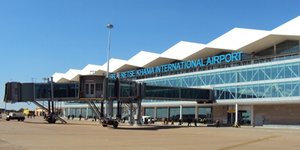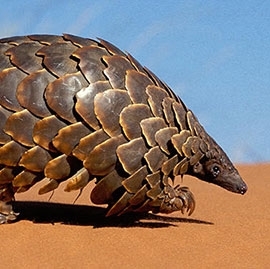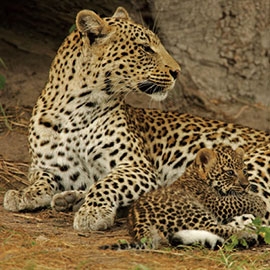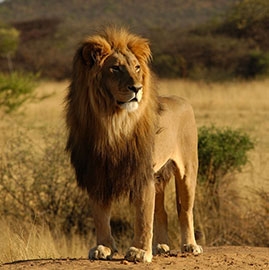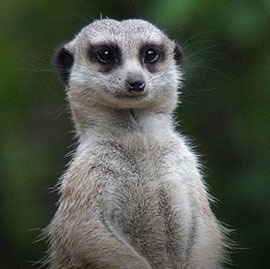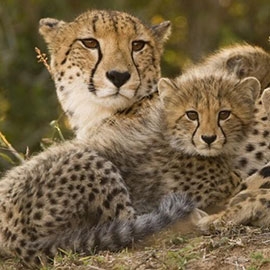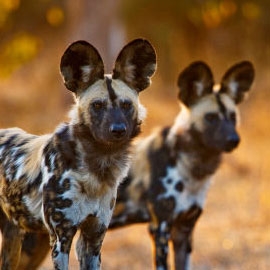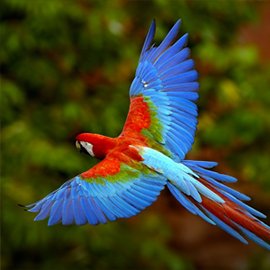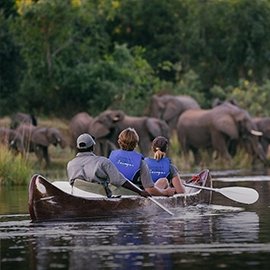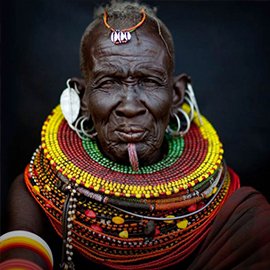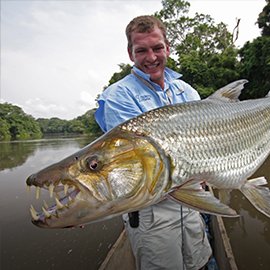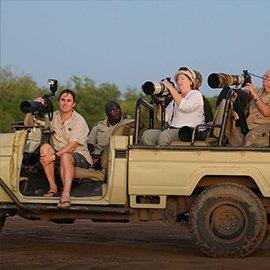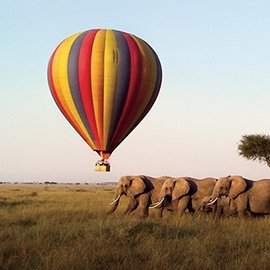Kgalagadi Transfrontier Park
Safari suitability: 7/10
Find your tourFor those interested in the mannerisms of large cats—including the magnificent black-maned lion—and the migratory movements of ungulates
What YAS members think
Highlights
- Amalgam of South Africa’s Kalahari Gemsbok National Park and Botwana’s Gemsbok National Park
- The black-maned lion and other large mammalian predators
- All of the large felines
- Seasonal migratory movements of large herbivores
- 904 km (562 miles) from Johannesburg and 250 km (155 miles) from Ipington
- Savannahs and grasslands, dunes and riverbeds
- Only two of the big five: lion and leopard
About Kgalagadi Transfrontier Park
Located on the border of South Africa and Botswana in the southern part of the Kalahari Desert, wildlife conserve Kgalagadi Transfrontier Park comprises South Africa’s Kalahari Gemsbok National Park and Botwana’s Gemsbok National Park. Established as Africa’s first formal peace park in 2000, Kgalagadi is jointly managed by the wildlife authorities of South Africa and Botswana. The 38,000 km² (15,000 mile²) park—three-quarters of which lie in Botswana—is 904 km (562 miles) from Johannesburg and 250 km (155 miles) from Ipington, where its blue skies and red dunes chase the generally dry riverbeds of the Auob and Nossob Rivers.
Known far and wide for its game, large, fenceless Kgalagadi is among the best-known parks for safari. The sparse vegetation and the profusion of animals along its riverbeds and pans makes for nigh-unparalleled game viewing, and its open, barrierless terrain allows those who visit its savannah and grasslands to witness the predatory maneuvers of large mammalian carnivores (cheetah, leopard, hyena and the kingly black-maned lion) and spy the large-scale seasonal migratory movements of large herbivores (blue wildebeest, springbok, eland and red hartebeest). Birders have the opportunity to spy some 300 species of bird, including the flights and carrion-related fancies of many a raptor. Spotting closer-to-the-ground pangolin, honey badger, ground squirrel and meerkat rounds out the experience.
The park takes great care to support its conservation efforts by enforcing strict limits on the number of vehicles and people visiting, so planning ahead is key. 4x4 vehicles are strongly recommended (self-drive and mobile tours), and routes on the Botswana side require a convoy of no fewer than two vehicles (travel limited to daylight hours and on-road driving). If traveling from one country to another, visitors must stay in the park for at least two nights.
When to visit Kgalagadi Transfrontier Park
Recommended winter (May to August) is cool and dry, with sunny days and cold nights; summer (October to February) temperatures can reach 42 degrees C (108 degrees F) in the shade. This arid region sees annual rainfall of 200 mm (7.8 inches) between January and April, with dramatic thunderstorms between November and April.
I visited Kgalagadi on my self drive route from Cape Town to Maun last April. Visiting the park is a must for nature lovers. Being such a remote place and so little visited, it offers you the feeling of really being "in the wild". Staff both in the South Africa and the Botswana sides were really helpful and friendly.
Sort by:
This park is located in the far north of South Africa on the borders of Namibia and Botswana. One can cross into these countries through the Kgalagadi and also camp on the Botswana side. Kgalagadi is a park that attracts the true wildlife and birding enthusiasts with its vast open spaces and red sand dunes. These features make the park is a photographers dream. The quiet park with a very good road network makes for a great safari experience as often one can sit and enjoy cheetah, lion or leopard sightings with no or very little traffic around you. The park is home to a variety of wonderful antelope with gemsbok and springbok being the most common. Other mammal sightings we have enjoyed have been brown hyaena, African wild cat, honey badger and caracal. The handsome Kalahari black maned lions call the Kgalagadi home and seeing one of these majestic cats walk in the red sand dunes in breathtaking. The park also boasts incredible cheetah sightings. The park plays host to many different raptor species for the birdwatchers with sightings of your dry arid birds being more common. Special sightings include secretary bird, Tawny eagle, bateleur, Lanner falcon, booted eagle, lappet-faced vulture and martial eagle, just to name a few. The parks main rest camps offer good, clean comfortable accommodation and there is also an option to make use of the more wild and rustic camps - a must for those who seek the tranquillity the Kalahari has to offer. The rustic camps require one to have a 4x4 vehicle and the rest of the Park requires a vehicle with good ground clearance, and make sure to adjust your tyre pressures accordingly. Any true wildlife enthusiast should make the effort and visit this magnificent park.
Known as the "Kgalagadi" by the Khomani San (Bushman), as well as all the visitors to this park that is part of San Parks. The Kgalagadi has a beauty that presents true nature and sometimes in it's harshest form to visitors visiting this park that spans from South Africa into Botswana. The chalet's are well equipped, modern and clean. The camps like Twee Rivieren and Nossob are a pleasure to visit and maintained quite well. In this park predator sightings are quite frequent as well as many birds and raptor photos are great. Also the antelope species, gemsbok (oryx), eland, springbok and many more can be seen. Due to the harsh and dry nature conditions, one will not see elephant or rhino unless this area has enough rain to sustain them. This is a photographers dream park and the iKaus lodge between the dunes within the Kgalagadi is a dream lodge to visit. At this lodge, you walk with the Bushman and learn about nature.
 United States
United States
Wow. Just wow. One of the earlier parks on our overland from Cape Town to Addis, this park might have been peerless. The freedom of a self-drive park (they all were for us, but there was a greater feeling of freedom here, considering the density of wildlife) is unforgettable. We had lions with cubs pass within 20ft of us. Curious giraffes eyeing us up close. An engorged massive snake dragging its bulk across the road. Three cheetahs loping into the desert on a hunt. A black-maned Kalahari lion resting in the tall grass. He was HUGE. And more. At night we watched jackals feed on moth hordes attracted by the lights. You can hear the jackals checking the fences at the campgrounds (unlike Chobe's unfenced wilderness spots) for ways in - keep your stuff packed away. This place is something greater - though a bit of a drive to get to.
 Australia
Australia
As far as animal viewing is concerned, you really cant go wrong in southern Africa. The Kgalagadi Transfrontier Park is absolutely massive and chock full of superlative wildlife. The list would be shorter if I mentioned what we didnt see! Plenty of zebras, gazelles, gnus, lions and springbok, as well as hartebeest. We even managed to score a cheetah mum with cubs. Just super! The park itself is really gorgeous, those red rolling dunes glowing a crimson red as the sun starts to set. The amazing thing about the Kgalagadi is that there are still plenty of indigenous communities who live here, which gives it a very unique feel, especially when compared to other parks where the only things you see is other 4WDs packed with tourists. We entered from Botswana with our own truck, so didnt need to stop at any of the lodges; we did take advantage of the free bush campsites, at least to replenish our fresh water supplies. Im sure all the lodges would be very nice to stay in, but I do recommend organizing a bush-camp trip here if youre game. Falling asleep in a tent to the sounds of howling hyenas is just mind-blowing. This would have to be one of the last unspoilt parks in Africa and experiencing it sans the luxury of mod-cons is a superb way to really absorb this unique corner of the continent. You really dont need a ranger to guide you around the Kgalagadi, the animals just about jump on your bonnet so if youve ever dreamt of flying to Africa, renting a 4WD and going off into the endless savannah...this would be my top pick.
The vastness of the Kgalagadi Transfrontier stirs the feeling of isolated semi-desert life. But your first game sightings will prove otherwise. The Kalahari lions, impressive gemsbok herds, cheetahs, leopards, and giraffes scatter this mega conservation park stretching across South African deep into Botswana. Visiting this park you are spoilt with true wildlife and unspoilt African nature. In true African style, visiting Kgalagadi Transfrontier Park during peak summer season will greet you with hot (sometimes extremely hot) and long summer days. The dry Nossob and Auob riverbeds are two excellent places where game viewing is guaranteed. As predators and prey gather here, you are likely to find yourself viewing a lion gang making a killing. The parks main roads offer self-drive accessibility to the riverbeds. The Twee Rivieren rest camp is located on the banks of the dry Nossob river, and is favored for its facilities (including electricity and the parks only restaurant) and its proximity to the Northern Cape town of Upington. Nossob and Auob are also good spots for birdwatching. But birdwatching at Kgalagadi is much more than the average birders expectations the birds of prey circling the sky, catching snakes, rabbits and other small mammals are not a sight often seen! For the more off-the-beaten-track traveler, opt for staying at one of the Kgalagadi Wilderness camp areas. The number of visitors are restricted to eight people per camp and lends a more intense atmosphere of desert isolation between the Kalahari dunes. Be sure to stock up on your choice of food and other supplies; the small shops at Twee Rivieren, Nossob and Mata Mata rest camps only offer basic and limited supplies. Water supply available for drinking and cooking purposes are safe, but many travelers prefer bringing their own supply as the water is salty. Gear up for a visit to the Kgalagadi Transfrontier Park, stay at least for a couple of days and you will be left in awe of the Kalaharis beauty.
If your idea of heaven is to completely shrug off the material world and get into the middle of nowhere, the Kgalagadi Transfrontier Park is just what you have been looking for - no cell phones, no crowds, just you and nature! This unique conservation area borders South Africa, Botswana and Namibia and is home to the fantastic Kalahari black-maned lion, among other wonders. This is a very dry region and the lack of vegetation makes game viewing really easy - all you have to do is find a suitable waterhole and wait...the game will come to you! If you have the time, an excellent option is to drive through the Park from South Africa to Namibia, spending at least two nights in the reserve. I would suggest spending your first night at Twee Rivieren Camp on the S A border (you will need to go through immigration control here - DO NOT neglect to have your papers stamped here, otherwise you will have difficulties leaving at the Namibia Border!) After your overnight stay at Twee Rivieren, (where there is a floodlit waterhole for night viewing and photos)you can take a slow drive to Mata-Mata camp - this takes about 2.5 hours - make sure you have plenty of drinking water - there are no shops enroute! The Kalahari (Kgalagadi)is a unique experience and not to be missed. Mata-Mata camp has had a revamp since my visit and the new chalets are reportedly very nice indeed. Do take everything you need with you if possible - the shops at the camps stock basics but you may not find what you need and prices are inflated.
Although Kgalagadi straddles two countries, Botswana and South Africa, it is possible to access the park through five gates in three different countries! From South Africa access is through the Twee Rivieren gate, from Namibia through the Mata-Mata gate, and from Botswana through the Two Rivers, Mabuasehube and Kaa gates. Passports are not required for entry, unless departure is planned through a different gate into another country, but Your African Safari encourages all travelers to have theirs on them.
Internal flights to Kgalagadi
It is possible to take a charter flight into the park from Cape Town, Johannesburg, Upington and Maun, but this will need to be arranged in advance. There are also scheduled flights to Upington on several domestic carriers, where you can hire a car and drive the remaining distance.
Traveling distances to Kgalagadi Transfrontier Park
Upington to Twee Rivieren: 265 km
Kuruman to Twee Rivieren: 383 km
Kimberley to Twee Rivieren: 621 km
Cape Town to Twee Rivieren: 1 076 km
Johannesburg to Twee Rivieren: 1 090 km
Durban to Twee Rivieren: 1 463 km
Mata-Mata to Keetmanshoop: 280 km
Kaa gate to Maun: 797 km
Mabuasehube gate to Gaborone: 533 km
Mabuasehube gate to Maun: 787 km
Mabuasehube gate to Tsabong: 115 km
Two Rivers to Gaborone: 810 km
Two Rivers to Tsabong: 310 km
Traveling distances within Kgalagadi Transfrontier Park
Twee Rivieren—Nossob: 3.5 hrs Twee Rivieren—Mata-Mata: 2.5 hrs Twee Rivieren—Kalahari Tent Camp: 2.5 hrs Twee Rivieren—Grootkolk: 6 hrs Nossob—Union’s End: 3 hrs Nossob—Mata-Mata (over Kamqua dune road): 3.5 hrs Nossob—Bitterpan: 2.5 hrs Bitterpan—Mata-Mata: 2 hrs Nossob—Grootkolk: 2.5 hrs Mata-Mata—Kalahari Tent Camp: 4 km
The following airlines travel to Kgalagadi Transfrontier Park
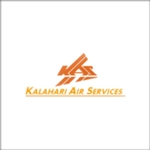
Established in 1968, Kalahari Air Services is Botswanas most experienced commercial maintenance and air charter service provider. With our dedicated fleet and crew, we offer safe, reliable and efficient private charters throughout Southern Africa. A flexible and dynamic company, we offer a wide range of aircraft services to meet your needs. Please see our services page for further details on all our services, such as medical rescue, freight and aircraft acquisition, and sales. Visit website
Also flies to:


Kgalagadi map
Nearby parks and game reserves
Related articles
Latest photos
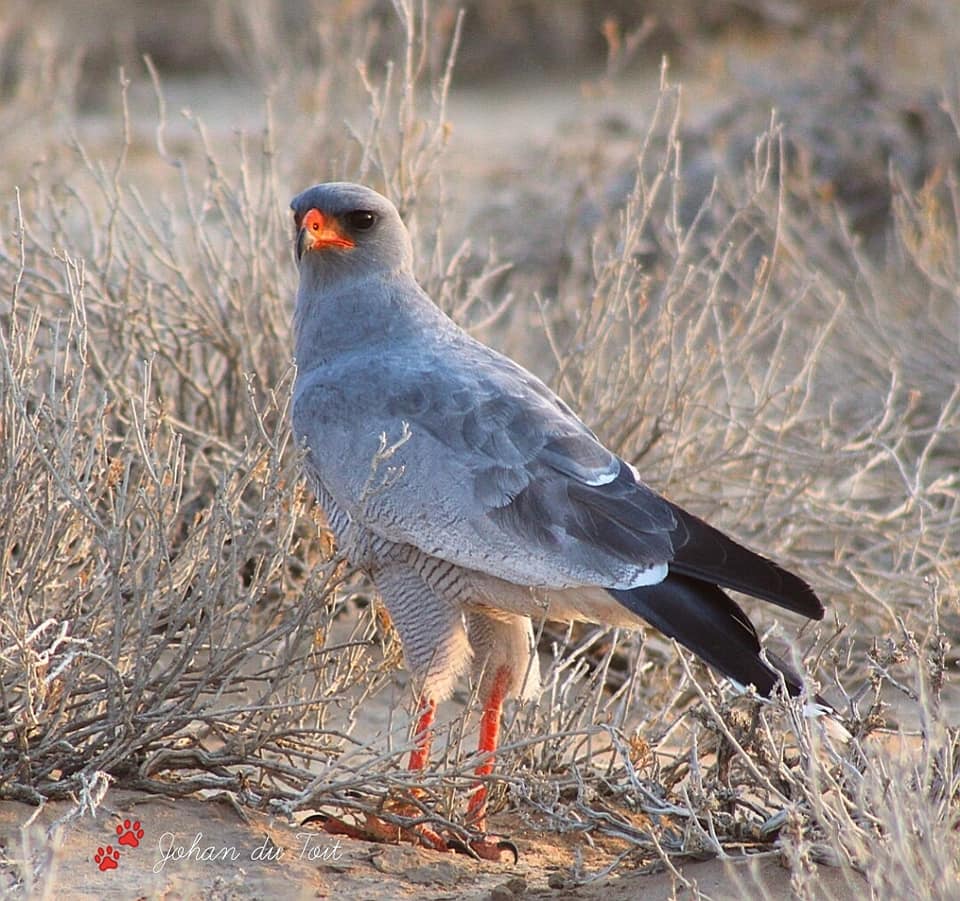
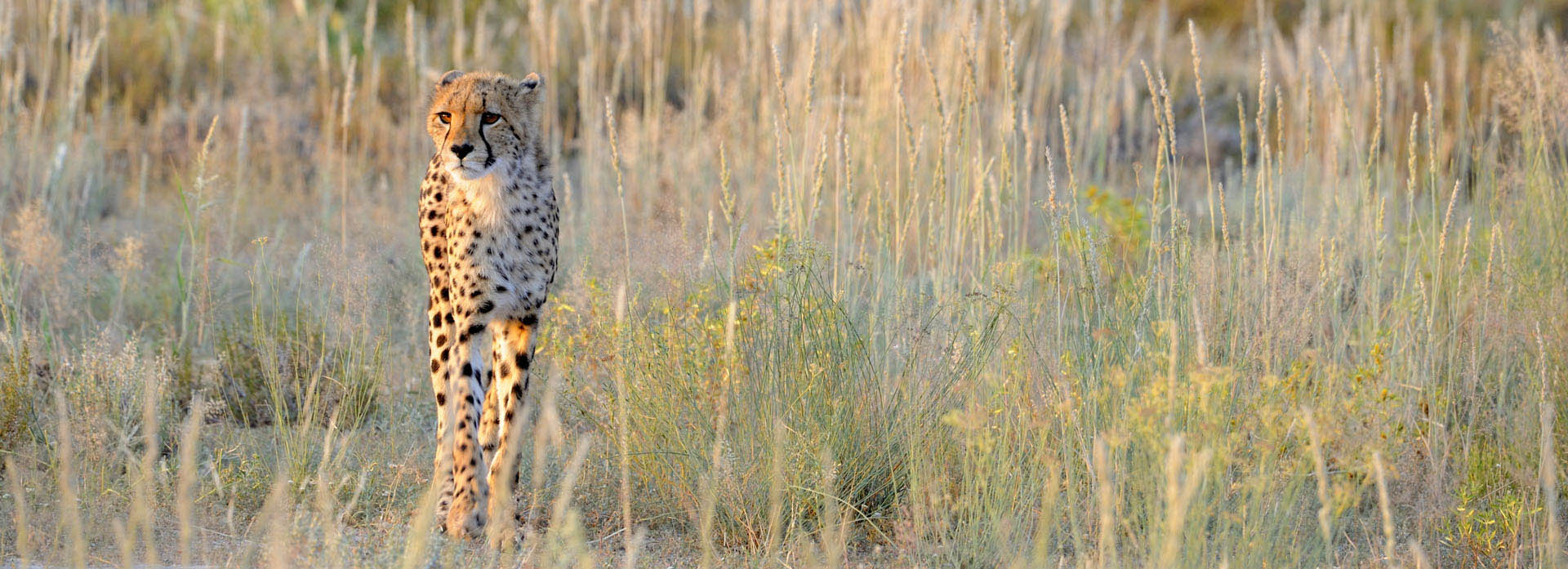
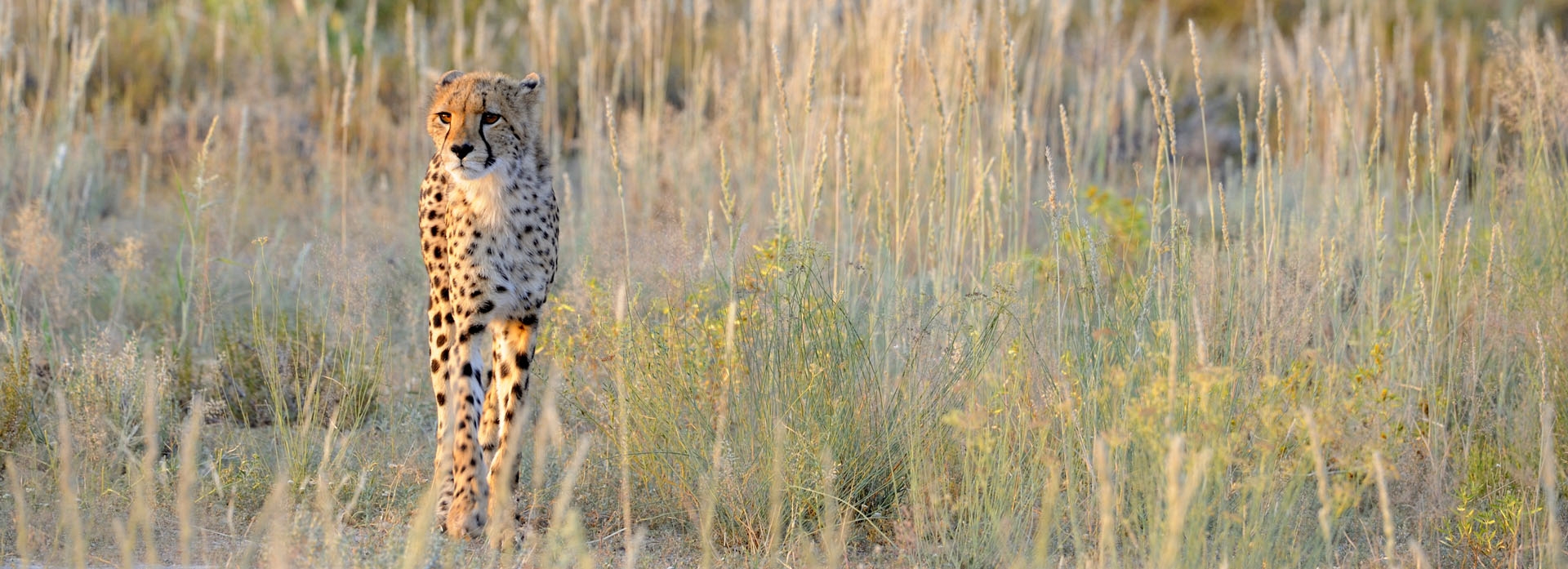
 Spain
Spain
 Namibia
Namibia
 South Africa
South Africa

